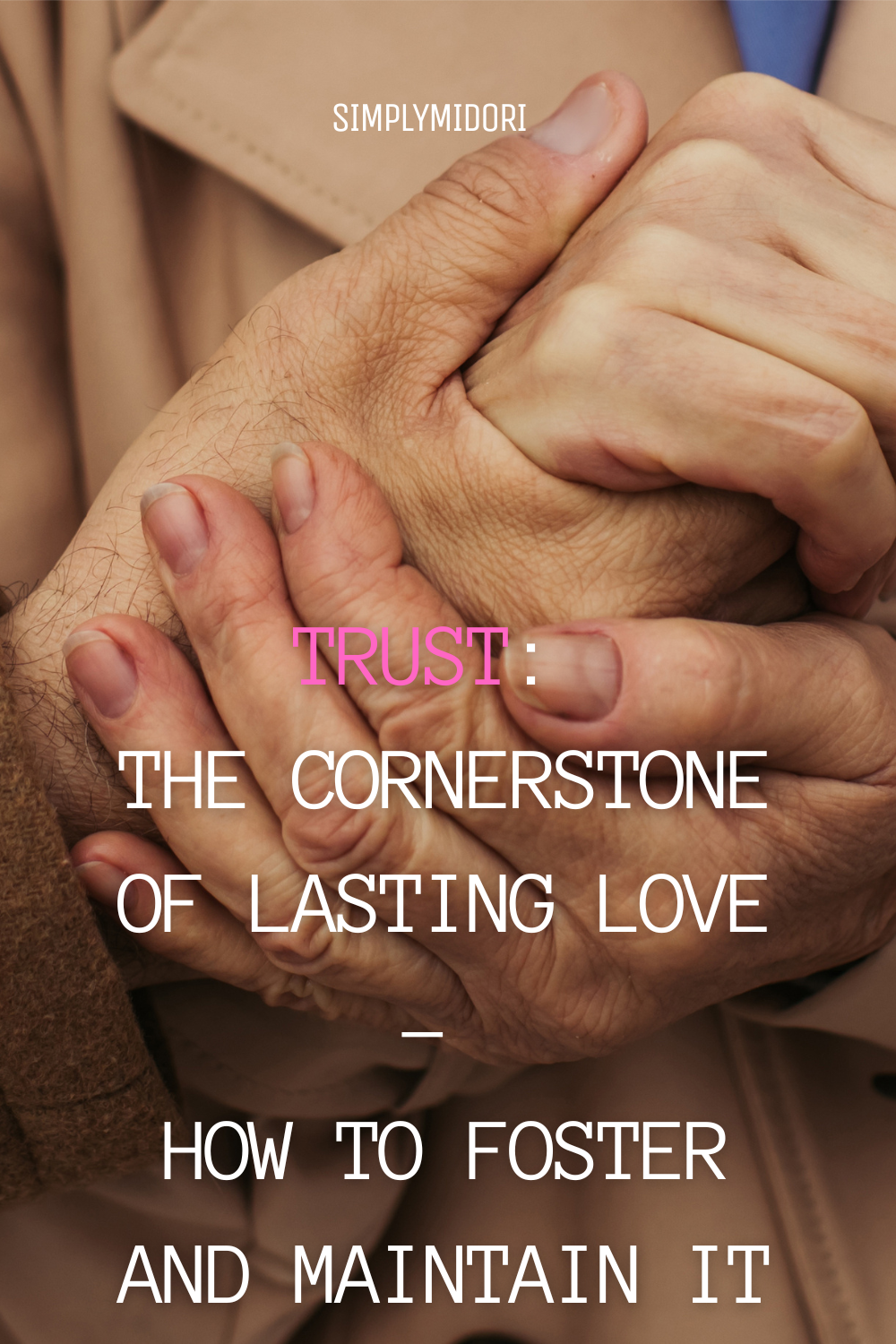Your Confident Guide to Recovering From an Affair
Infidelity, the breach of trust within a committed relationship, is an emotionally devastating experience that can shatter the foundation of love and security. When a partner discovers that an affair happened, it brings deep pain, confusion, and a feeling of being deeply hurt, regardless of whether it’s an emotional affair or a sexual affair.
Affair recovery is challenging. It demands strength, understanding, and a strong resolve to rebuild trust. Healing from infidelity isn’t just about going back to how things were; it’s about creating a new and stronger marriage moving forward.
This guide takes you on a journey of self-reflection, learning from the past, and building a shared vision for the future together. We will highlight the significance of personal growth, making positive changes, and nurturing a fresh sense of love, trust, and happiness.
As you embark on this recovery process, remember you are not alone. This guide is a compassionate companion, providing valuable insights, practical advice, and a roadmap toward healing and rebuilding.
Let’s Dive In
What To Do When Recovering From Affair: The Infidelity Recovery Stages
1. Acknowledge And Process Your Intense Emotional Pain
Discovering infidelity plummets our mental health. In an instant, you realize that they were not just friends or that they were sleeping with someone at their private practice. From here on out, you question every time the wayward spouse left the house.
Whatever the scenario, out of all the stages, this one can feel the hardest because, in a moment, we can feel like everything is and was a lie in our marriage. Give yourself permission to experience and work through the intense emotional pain that arises.
Here are some strategies to help you process your intense emotions effectively:
Allow Yourself to Feel: Acknowledge and accept the full range of emotions that come up for you, such as anger, sadness, betrayal, confusion, and grief. Avoid suppressing or denying your feelings, which can prolong the healing process. Instead, give yourself permission to experience and express your feelings.
Find Healthy Outlets: Engage in activities that provide a healthy outlet for your emotions. This could include journaling, art, exercise, listening to music, or engaging in hobbies that bring you joy.
Practice Self-Compassion: Be kind and compassionate towards yourself as you navigate the emotional rollercoaster of infidelity. Avoid self-blame and self-criticism, as these thoughts can impede the healing process.
Create Boundaries: Establishing boundaries can be crucial for protecting your emotional well-being. This may involve setting limits on conversations or topics related to the affair or temporarily distancing yourself from the unfaithful partner if needed.
Communicate your boundaries to both yourself and your partner, and ensure they are respected.
Allow for the Grieving Process: Infidelity involves a loss of trust, and it’s crucial to allow yourself to grieve that loss. Recognize that healing takes time and that it’s normal to experience a sense of loss, even if you decide to stay in the marriage. Give yourself permission to mourn the loss of the relationship you thought you had and the betrayal you experienced.
Consider Individual Therapy: Working with a professional counselor specializing in relationship issues and infidelity can provide valuable guidance and support. A licensed professional counselor can help you navigate your emotions, gain insights into the underlying issues, and develop coping strategies to process your emotions effectively.
Remember, there is no set timeline for healing after an affair. You are embarking on a personal journey! Be patient and compassionate with yourself as you work through your emotions. Although you may feel hopeless now, with time, support, and self-care, you will gradually move toward healing, growth, and a renewed sense of emotional well-being.
2. Self-Care & Self-Compassion
Self-care and self-compassion are essential to healing and rebuilding when recovering from an affair. Taking care of yourself emotionally, mentally, and physically is crucial during this challenging time.
Here are some strategies to prioritize self-care and cultivate self-compassion:
Prioritize Your Well-being: Make self-care a priority in your daily life. One can improve their mental health conditions by getting enough sleep, eating nourishing meals, and exercising regularly. Pay attention to your emotional well-being by engaging in activities that bring you joy and relaxation.
Set Healthy Boundaries: Establish clear boundaries to protect your emotional and mental well-being. This may involve limiting contact or communication with someone who betrayed you and creating space for self-reflection and healing. Communicate your boundaries assertively and enforce them to maintain your emotional safety. (More On This Below)
Recommended Reading: How To Practice Self LoveEngage in Activities You Enjoy: Make time for activities that bring you happiness and help you relax. Engage in hobbies, creative pursuits, or activities you find fulfilling and rejuvenating. It could be reading, painting, listening to music, practicing mindfulness or meditation, or spending time in nature. These activities can help distract you from negative thoughts and promote well-being.
Practice Self-Compassion:
-
Be kind, gentle, and understanding with yourself.
-
Treat yourself with the compassion and empathy you offer your trusted friends when they go through a difficult time.
-
Practice positive self-talk and challenge any self-blaming thoughts or feelings of inadequacy.
Practice Mindfulness and Relaxation Techniques: Incorporate mindfulness and relaxation techniques into your daily routine. These practices can help you stay present, reduce stress, and manage overwhelming emotions. Deep breathing exercises, meditation, yoga, or guided imagery can effectively calm your mind and cultivate a sense of inner peace.
Engage in Self-Reflection: Reflect on your feelings, needs, and desires. Start by being completely honest with yourself. The affair happened, and you feel betrayed. What feelings or thoughts do these statements bring up? Write them down. Journaling will help you gain insight into your emotions and experiences. While at it, reflect on your values, personal growth, and the direction you want to take. (This includes deciding if your marriage will survive infidelity).
Practice Healthy Coping Mechanisms: Avoid engaging in destructive behaviors or coping mechanisms, such as excessive drinking, substance abuse, or isolating yourself from others. Instead, develop healthy coping strategies that support your well-being, such as seeking family therapy (if kids are involved), seeking support from loved ones, engaging in physical activity, or expressing yourself through creative outlets.
3. Forgiving and Letting Go
Forgiving a cheating partner is deeply personal and complex in the affair recovery process. It requires time, self-reflection, and a genuine willingness to heal and move forward. While forgiveness may not be easy, it can be a transformative and empowering choice for your own journey.
Here are some steps to consider as you navigate the path toward forgiveness:
Allow Yourself to Feel: Before forgiveness can occur, it is essential to acknowledge and process your emotions fully. Permit yourself to experience the range of emotions that come with an affair. Allow yourself to grieve the loss of trust and its impact on your marriage.
Seek Understanding: Try to gain a deeper understanding of the reasons behind the infidelity. Perhaps you want to learn what led to the affair. Was it only sexual or also an emotional affair? Maybe you want the intimate details behind the affair, like how long the affair went on or who the affair partner was. While sometimes these details do more harm than good if you believe this is what you need, by all means, go and get it!
HOWEVER- We would encourage you not to focus on what led to the affair as much as you focus on WHY the affair happened. As you start to deeply understand why the affair occurred, you can start creating a new, happy relationship with yourself and your partner!
Full Disclosure: Engage in open and honest communication with your unfaithful spouse. This communication should be a two-way process, allowing you both to share your thoughts, emotions, and intentions.
Seek Couples Therapy: Consider engaging in marital therapy, marriage counseling, or infidelity counseling to navigate the challenges of healing after infidelity. A trained therapist can teach couples how to facilitate healthy communication, provide helpful tips, and help you and your partner work through the underlying issues that contributed to the infidelity.
Recommended Reading: 71 Questions That Couples Will Answer In TherapyRelease Resentment: Affairs cause massive resentment. It is important to work towards releasing resentment, which may involve letting go of the desire for revenge or the need to constantly bring up the past. This doesn’t mean forgetting or dismissing the pain but rather consciously choosing to focus on healing and not the affair.
Embrace Vulnerability: Forgiveness requires vulnerability and the willingness to open yourself up to the possibility of being hurt again. This vulnerability can be challenging but necessary. Be open to the process, and communicate your needs and fears with your partner.
Time and Patience: Forgiveness is a journey that takes time. Allow yourself the space and time to heal and forgive at your own pace. Forgiveness is a personal choice, and it may not always be possible or appropriate depending on the circumstances.
Trust your instincts; if forgiveness feels unattainable or the relationship remains unhealthy, it may be necessary to consider other options, such as separation or seeking individual support from a therapist to navigate your own healing journey.
4. Rebuilding Self-Trust
Rebuilding trust when recovering from an affair is a challenging and complex process. It requires commitment, patience, full disclosure, and open communication from both partners.
While the journey to rebuilding trust will be unique for every marriage, here are some general steps that can help guide you:
Taking Responsibility: The partner who cheated must take full responsibility for their actions and demonstrate sincere remorse. This includes being willing to answer questions, providing reassurance against future affairs, and accepting the consequences of their behavior- these all help facilitate healing for the marriage. Taking responsibility is crucial!
Note: The betrayed spouse may also find themselves seeking forgiveness for the part they played.
Consistency and Reliability: The partner who had the affair must demonstrate consistency and reliability in their actions over time. They must show a genuine commitment to change, follow through on their promises, and rebuild trust through consistent behavior. Trust is built gradually through consistent actions.
Patience and Understanding: Rebuilding trust takes time and patience. Understand that healing is a process that will have ups and downs. It is normal to experience setbacks or triggers along the way. Practice patience with yourself and your partner, and be understanding of the emotions and challenges that may arise during this journey.
Self-Care and Individual Growth: Both partners should prioritize their own self-care and personal growth during the rebuilding process. Nurturing yourself individually will contribute to the overall health of the marriage.
Consistent Effort: Rebuilding trust and recovering from an affair requires constant effort from both partners. It involves consciously prioritizing the marriage, addressing any underlying issues, and working together to strengthen the emotional bond. Regular check-ins and ongoing commitment are vital for sustained progress.
Transparency and Accountability: The partner who had the affair should be willing to be transparent and accountable for their actions. This may include sharing passwords, being open about their whereabouts, and allowing their partner to ask questions when needed.
5. Set Boundaries and Reestablish Relationship Norms
Setting boundaries and reestablishing relationship norms is a vital step in affair recovery. It helps create a sense of safety, establishes expectations, and promotes open communication between partners.
Here are some key considerations when setting boundaries and reestablishing relationship norms after infidelity:
Vulnerable Communication: Discuss your feelings, concerns, and needs. Encourage your partner to share their thoughts and actively listen to each other without judgment.
Define Personal Boundaries: Each partner should identify their personal boundaries – the limits they need to feel safe and respected in the marriage. This may include boundaries related to privacy, communication, social interactions, or personal space. Clearly communicate these boundaries to your partner and be receptive to their boundaries as well.
Establish Relationship Boundaries: In addition to personal boundaries, establish boundaries that apply to the marriage as a whole. These boundaries might involve expectations around fidelity, transparency, accountability, and even involving other family members. Determine what is acceptable and what is not, and ensure both partners are in agreement.
Consider Temporary Boundaries: Sometimes, affair recovery requires establishing temporary boundaries that provide an extra layer of reassurance and protection. These boundaries can serve as guidelines until trust is further rebuilt. For example, the betrayed spouse may want shared passwords or set specific check-in times to restore a sense of security.
Recommended Reading: Navigating Relationship InsecuritiesReevaluate Marriage Norms: Take the opportunity to reevaluate existing marriage norms and patterns. Identify any unhealthy dynamics that may have contributed to the infidelity and discuss how to change them. Perhaps seek support from a marriage counselor to facilitate this process.
Consistency and Reliability: Both partners must be consistent in their words and actions if the marriage is to survive the affair. It is essential to follow through on commitments, be reliable, and demonstrate consistent behavior that aligns with the agreed-upon boundaries and relationship norms.
Regular Check-Ins: Have consistent marriage check-ins to discuss any adjustments needed to the established boundaries and relationship norms. These check-ins provide an opportunity to address concerns, reinforce positive changes, and make necessary modifications to support ongoing growth.
Respect Each Other’s Boundaries: It is crucial to respect and honor the boundaries set by both partners. Violating boundaries undermines the affair recovery process and erodes trust.
Be Flexible and Open to Growth: Trust requires flexibility and a willingness to grow as individuals and as a couple. Remain open to feedback, be receptive to changes, and adapt as needed. Allow room for growth and transformation in your marriage.
Clarify Expectations: Clearly communicate your expectations for the marriage moving forward. Discuss what you need from each other in terms of honesty, commitment, and emotional support. This helps create a shared understanding of the desired marriage dynamics.
Consensual Decision-Making: Sometimes betrayed spouses feel they should make all decisions after an affair. However, both partners are involved in the marriage process when setting boundaries and reestablishing relationship norms.
6. Managing Triggers and Residual Pain
Developing coping strategies for triggers is an essential part of managing the emotional impact of infidelity. Coping strategies can help you navigate difficult emotions, reduce distress, and regain a sense of control.
Identifying Triggers: The betrayed partner must identify potential triggers to heal after infidelity. Infidelity can cause post traumatic stress disorder, and certain things may trigger the pain of extramarital affairs. Triggers are situations, behaviors, or circumstances that remind the betrayed partner of the affair and evoke strong emotional responses. By identifying triggers, you can become more aware of what sets off negative emotions and work on managing them effectively.
Here are some steps to help you identify triggers that affairs may cause:
Self-Reflection: Take time to reflect on your emotions and reactions since the discovery of the affair. Notice when you feel particularly upset, angry, or sad. Pay attention to situations or circumstances that consistently elicit strong emotional responses.
Journaling: The betrayed partner should keep a journal to start understanding their thoughts and emotions about the affair. Document situations or events that cause intense reactions or bring up memories of the infidelity. Write about how you felt in those moments and any patterns you noticed.
Emotional Awareness: Develop an awareness of your emotional state throughout the day. Notice any sudden shifts in mood or unexplained feelings of unease. These could be indicators of triggers that need to be explored further.
Physical Sensations: Pay attention to any physical sensations that arise when you encounter potential triggers. This could include changes in heart rate, tension in your body, or an unsettled feeling in your stomach. These physical cues can help you recognize when you’re being triggered.
Environmental Triggers: Consider the environments or settings that may trigger the affair. It could be specific places, events, or even certain people who remind you of the infidelity. Take note of these triggers and the associated emotions they bring up.
Relationship Triggers: Identify specific behaviors, actions, or words from your partner that act as triggers. This could include certain phrases, secretive behavior, or even reminders of the affair. Recognizing these triggers allows you to communicate them to your partner and work together on avoiding them.
Social Media and Technology: Pay attention to how social media, technology, or online interactions may trigger feelings from the affair. Seeing certain posts, pictures, or messages related to infidelity can be deeply distressing. Consider taking breaks from social media or setting boundaries around technology use if it triggers you.
Develop Coping Strategies: Once you have identified triggers, work on developing healthy coping strategies to manage them. This may include deep breathing exercises, mindfulness techniques, seeking support from loved ones, or engaging in activities that bring you joy and a sense of calm.
Emotional Patterns: Notice any recurring emotional patterns that arise in response to specific situations and behaviors, or are there other factors that trigger you. For example, you may feel a surge of anger when your partner stays out late without informing you.
7. Rediscovering Intimacy and Connection
Reestablishing intimacy after infidelity can be a gradual and delicate process. It requires open communication, vulnerability, and a willingness to trust again. Reestablishing intimacy after an affair can be a gradual and delicate process. It requires constant vulnerability in your relationship.
Recommended Reading: How To Navigate & Overcome Intimacy IssuesHere are some strategies to help you reestablish intimacy in your relationship moving forward:
Practice Emotional Transparency: Share your thoughts, fears, and vulnerabilities with each other. Reestablishing intimacy involves being transparent and allowing your partner to know and understand your inner world. This can create a deeper level of connection and empathy.
Foster Emotional Safety: Create an environment that promotes emotional safety. This involves respecting each other’s boundaries, providing reassurance and support, and avoiding defensive or judgmental responses. Emotional safety allows both partners to express their emotions and concerns without fear of rejection or criticism.
Focus on Emotional Closeness Exercises: Engage in exercises specifically designed to build intimacy. This may include asking each other meaningful questions, practicing active listening, or engaging in activities that encourage emotional vulnerability and connection.
Practice Forgiveness: Forgiveness is a personal and complex process, but it can contribute to emotional healing and intimacy. Work towards forgiveness, both for yourself and your partner, recognizing that it does not mean forgetting or condoning the infidelity.
Practice Active Listening: Show genuine interest and attentiveness when your partner is sharing their thoughts and feelings. Practice active listening by giving them your full attention, maintaining eye contact, and responding with empathy and understanding.
Cultivate Emotional Connection Rituals: Establish rituals or activities that foster emotional connection and intimacy. This could include regular date nights, daily check-ins to discuss feelings and concerns, or shared rituals such as cooking together or taking walks. Consistency in these rituals strengthens emotional bonds.
Recommended Reading: Activities That Build IntimacyPractice Emotional Availability: Make an effort to be emotionally available to your partner. Be present and attentive when they need to share their thoughts, concerns, or joys. Show genuine interest and offer emotional support. This conveys your commitment to rebuilding intimacy after an affair.
Express Appreciation and Affection: Regularly express appreciation and affection towards your partner. Show them that you value and cherish them. Small gestures such as hugs, compliments, or love notes can go a long way in rebuilding emotional connection.
Foster Emotional Vulnerability: Encourage emotional vulnerability by sharing your own feelings, fears, and insecurities with your partner. Opening up in this way creates a sense of safety and encourages your partner to do the same.
8. Rebuilding Physical Intimacy
Affairs erode the physical connection in a marriage. To create what was lost or never there, couples must build trust by being vulnerable (all the things above).
Once a couple decides to become physical again after infidelity, we have some strategies to help:
Take It Slow: An affair completely erodes intimacy in a relationship. Sometimes, the problem is the lack of physical attraction, sex, or emotional closeness that led to the affair in the first place. While you should not jump into a physical relationship immediately after an affair, we do encourage you not to take years! Both partners should start to reacquaint themselves with physical touch and affection, allowing trust to grow naturally.
Recommended Reading: Why A Sexless Marriage HappensEngage in Non-Sexual Touch: Begin with non-sexual touch to reconnect on a physical level. This can include holding hands, hugging, cuddling, or giving massages. Non-sexual touch helps rebuild comfort and intimacy gradually without placing immediate pressure on sexual activity.
Explore New Ways of Intimacy: Be open to exploring new ways of intimacy that may differ from your pre-infidelity experiences. This can include trying new activities, experimenting with different forms of physical touch, or engaging in sensual experiences that promote emotional and physical connection.
Express Affection and Appreciation: Regularly express affection and appreciation towards your partner. Show them love, admiration, and gratitude through verbal affirmations, acts of kindness, and physical gestures. These expressions of affection help foster emotional and physical closeness.
Recommended Reading: 9 Ways To Prioritize Your SpouseFocus on Sensuality and Intimacy Outside the Bedroom: Rebuilding physical intimacy isn’t solely about sexual activity. Cultivate sensuality and intimacy in other aspects of your relationship. Engage in activities that bring you closer as a married couple, such as sharing quality time, engaging in deep conversations, reading self help books together, and engaging in affectionate gestures throughout the day.
Explore Sensual Activities: Engage in activities that promote sensual connection and intimacy. This could include sharing a romantic dinner, going for a couple’s massage, or taking a bath together.
KNOW THAT HEALING AFTER AN AFFAIR IS POSSIBLE, NOT EASY, BUT POSSIBLE!
Join Us in Building Stronger Connections Worldwide – Spread the Love, Share with a Friend!

















